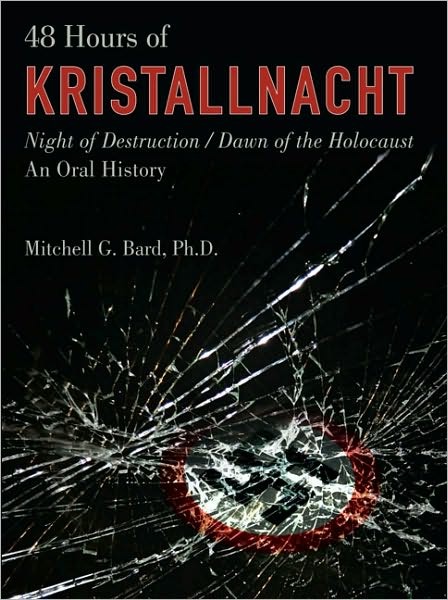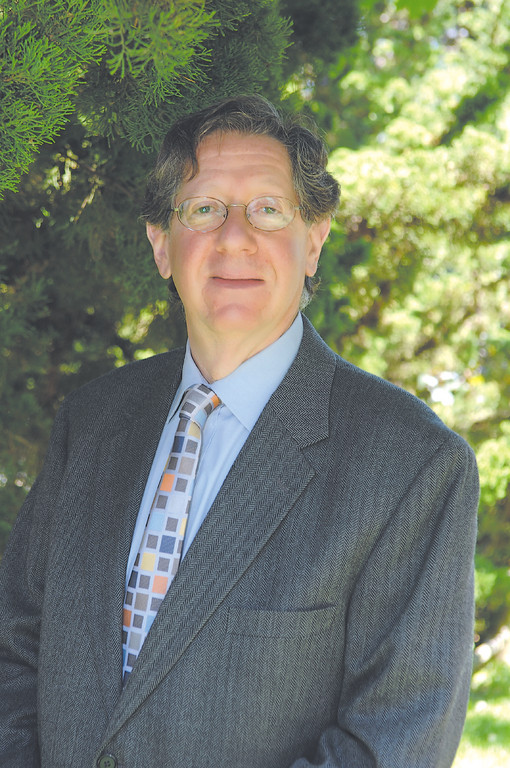November 2013: On many levels, a month to remember
November 2013 will be a month to remember. Consider the following:
•Nov. 9-10 marks the 75th anniversary of Kristallnacht.
•Nov. 19 marks the 150th anniversary of Pres. Abraham Lincoln’s Gettysburg Address.
•Nov. 22 marks the 50th anniversary of the assassination of Pres. John F. Kennedy.
•Nov. 28, Thanksgiving Day, is the first day of Chanukah.
Starting this week, this column will attempt to give a literary spin to these events and cite several books to convey a better understanding of their historical, and if relevant, religious, significance.
Three years ago, I referenced an excellent work dealing with an oral history of Kristallnacht, “48 Hours of Kristallnacht” by Dr. Mitchell Bard. According to Rabbi Abraham Cooper of the Simon Wiesenthal Center, this work is Kristallnacht’s version of the Book of Lamentations. Sadness, destruction, human suffering and religious persecution permeate each page; betrayal of friendship and of the integrity of both faith and belief in a G-d based civilization fill its pages.
Seventy-five years ago next Shabbat, the opening gunfire heralded the beginning of the Holocaust. Bard’s compendium of anecdotes and eyewitness testimony is organized into nine chapters, each themed to a different aspect of this National Socialist sponsored terrorism. Five appendixes, in great detail, delineate Heinrich Muller’s orders to the Gestapo, the text of Reinhard Heydrich’s instructions to his goon squads, and a partial list of synagogues that were destroyed.
Another work for next weekend’s observance is “Small Miracles of the Holocaust” by Yitta Halberstam and Judith Leventhal. It contains more than 50 touching and remarkable stories, each ending with an uplifting theme. I quote in full one story, “The Converted” :
As a 50 year veteran of the pulpit, Rabbi Berel Wein knows that everybody has a story, every human being is a story, and that some stories are stranger than others. He thought he had heard them all. But Jerusalem, a city with a different slant of light, a magnet for mystics, saints, penitents, holy beggars, prophets, never fails to surprise. It was first here that he met an Orthodox Jewish man who confided that he was a convert to Judaism, and that his father had been a Nazi during the war.
“When I was in my early twenties,” the man told Rabbi Wein as they walked home from synagogue one Shabbos afternoon,
“I learned my father’s secret. He had been an SS man during the war, and had participated in many massacres of Jews. I was so angry at him, so devastated, that I immediately fled my home, never to return. I turned my back on my family, completely severing my ties and renouncing them fully.
“Of all places, I decided to travel to Israel to gain some perspective on the people whom Hitler hated so much and whom my father had killed. I fell in love with the country and decided to pursue graduate studies in microbiology at Hebrew University in Jerusalem.
“As my stay lengthened, I became increasingly interested in the Jewish religion. Eventually, I converted to Judaism. I married another German convert — with a similar background to mine — and we had three children, all boys. They studied in Jerusalem yeshivas where they received an excellent Jewish education, and we raised them as Orthodox Jews. Although they were blond and blue-eyed, they looked and acted exactly like their peers in all other respects — cute little yeshiva boys with yarmulkes perched on their heads and tzizit dangling from beneath their shirts. No one would ever have guessed their genetic heritage.
“Many years passed, and my resolve not to communicate, ever, with my family only hardened over time. But one day I was startled to find in my mailbox a note from my father telling me that he was dying, and pleading to see his grandchildren just once before he died.
I consulted with a venerable rabbi in Jerusalem and asked him what to do. He instructed me to fulfill my father’s dying wish, to allow him to see his grandchildren before he died.
“I was thunderstruck that a former Nazi, who had tortured and killed Jewish children himself, would ever want to encounter grandchildren who looked like yeshiva boys who resembled his past victims. Our meeting was difficult. My father, gaunt and ghostlike, looked shriveled as he leaned toward us, his shrunken eyes studying my children’s faces most carefully. The atmosphere was strained and pensive. He coughed intermittently and his voice was raspy. He hugged my children tightly, planted tender kisses on their cheeks, and wept. The room smelled of decay and death.
“I knew it would not be long. And I knew that whatever he had to say to me that day could only be the truth. ‘I want to tell you something,’ he said. ‘I think you will appreciate it.’ “My father went on to tell me this story:
“ ‘One day, during the war, in a small village near the Eastern Front, my comrades and I were rounding up all the Jewish residents and throwing them into trucks bound for the gas chambers. Before we left, we made one last tour of the village to make sure we had caught every single one. It was during this last round of inspection that I saw them: three sets of round eyes, frightened eyes peering out at me from underneath one of the trucks. Their eyes locked with mine as I made my triumphant discovery. I was about to call out to my cohorts, to tell them of my find, when something stopped me. Those eyes implored me. For the first and only time in my Nazi career, my heart was touched. I couldn’t do it. Those eyes bore into me. I walked away from the truck and shouted to the others, ‘We’re done here. No one left. Let’s go.’
“ ‘I will never forget them,’ my father told me. ‘They were three little Jewish boys with sweet faces and innocent eyes. Just like yours.’
“ ‘You know,’ my father mused, a sudden light glinting in his cloudy eyes, ‘I am sure that if there had been four of them hiding underneath the truck that day, I would have four grandchildren, not three.’ “
Alan Jay Gerber is a resident of the Five Towns.

 80.0°,
Partly Cloudy
80.0°,
Partly Cloudy 







